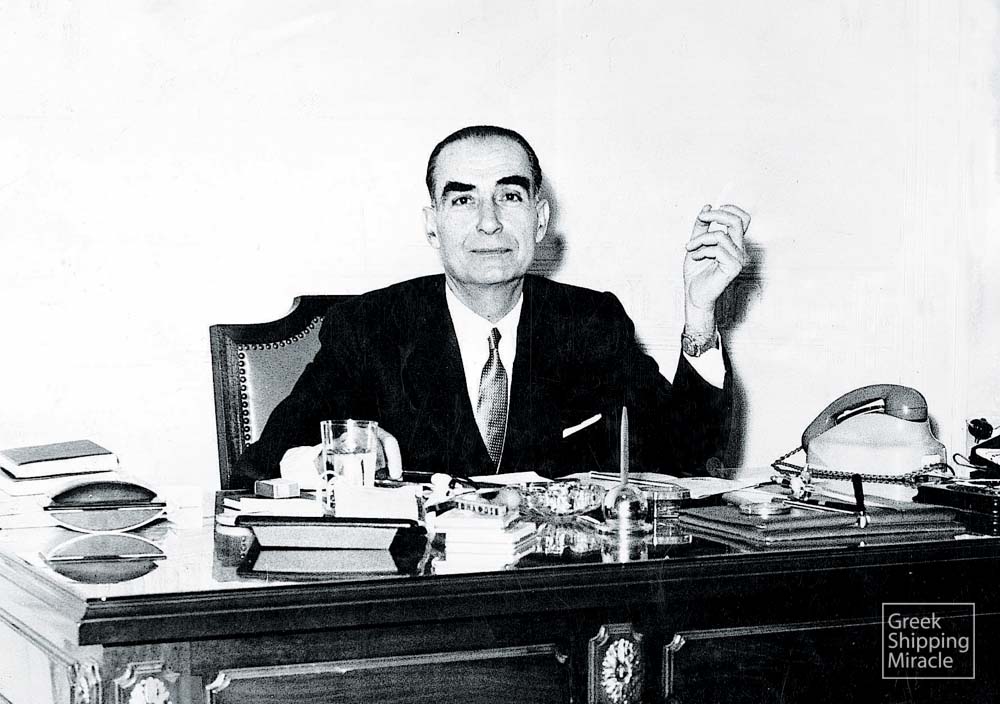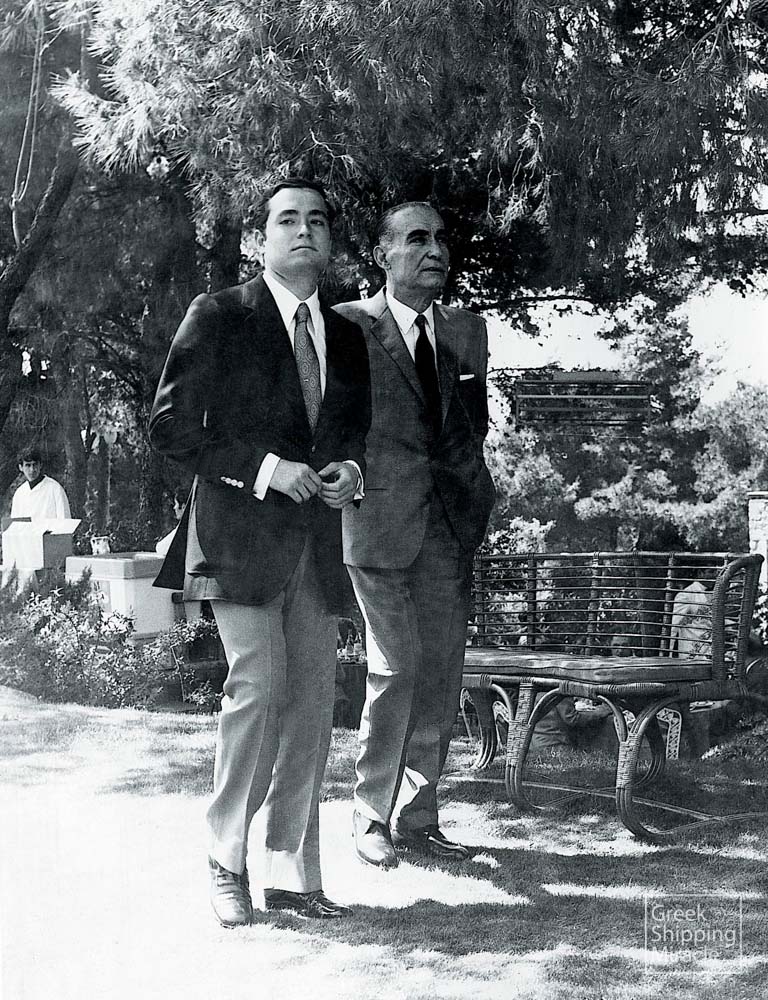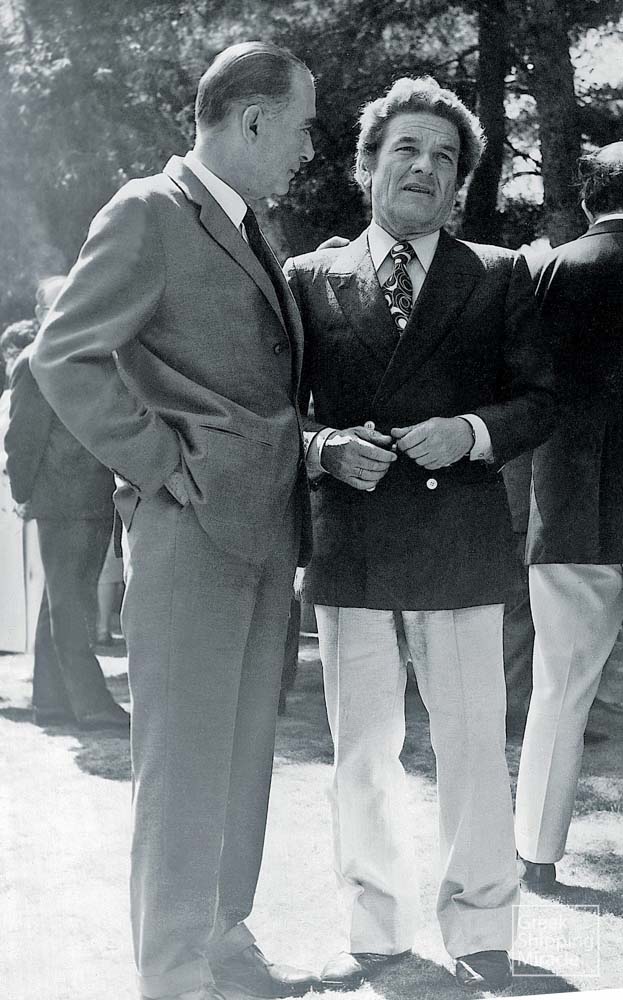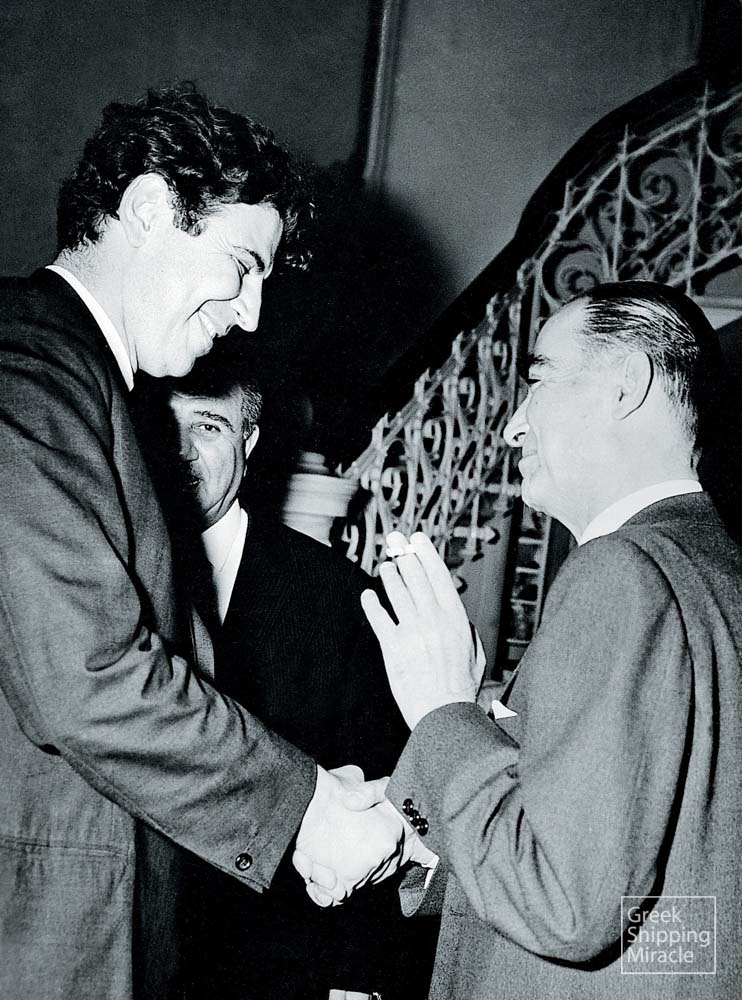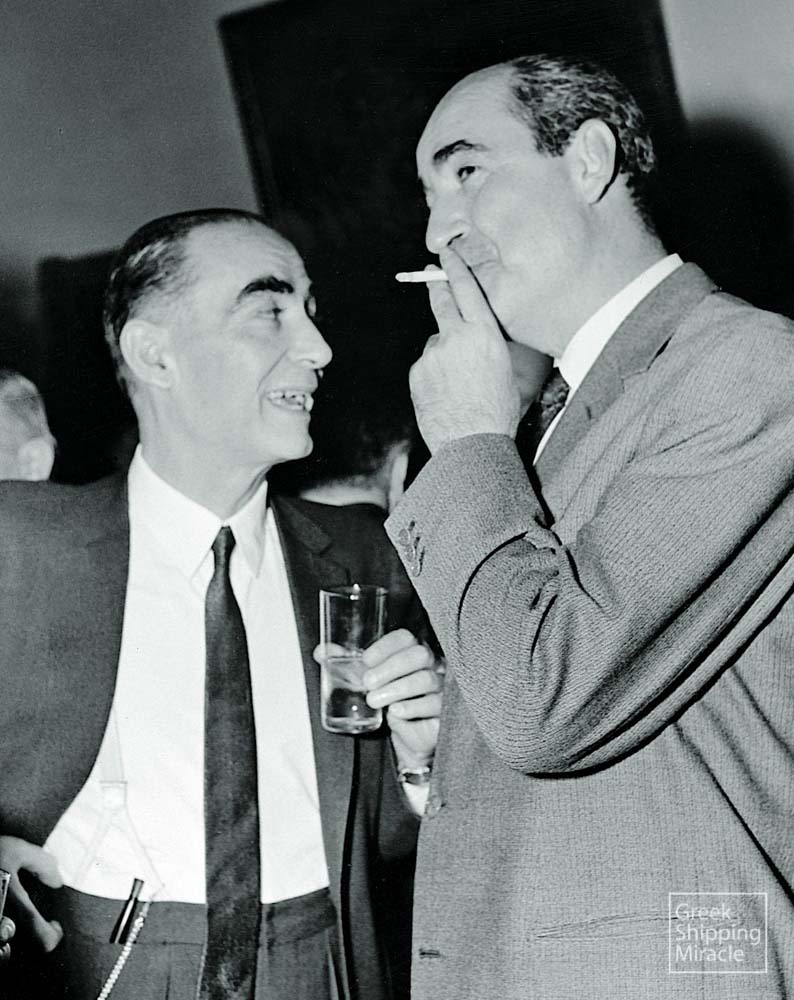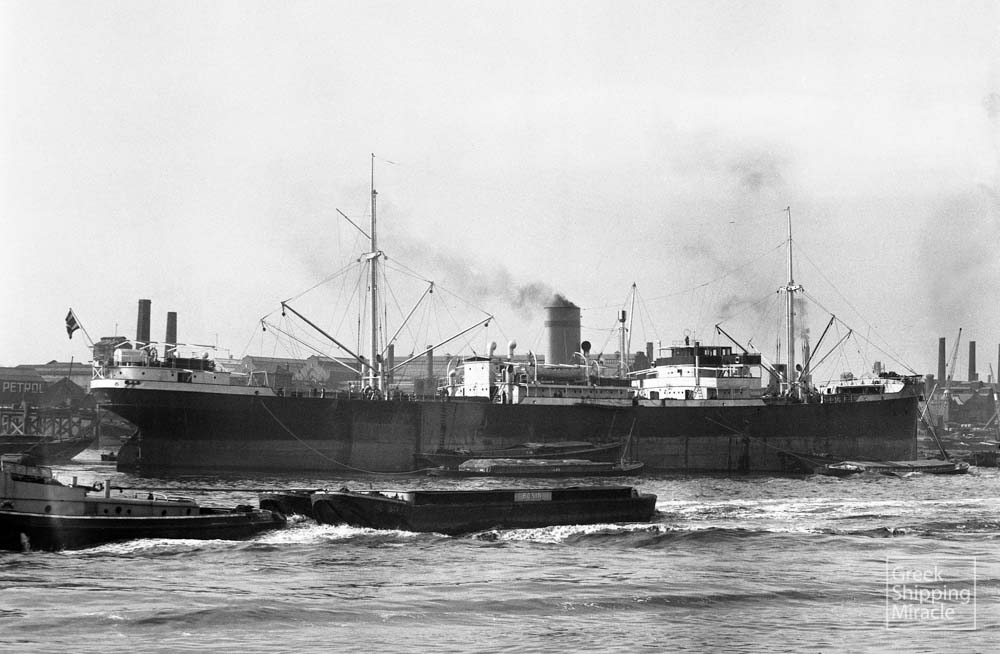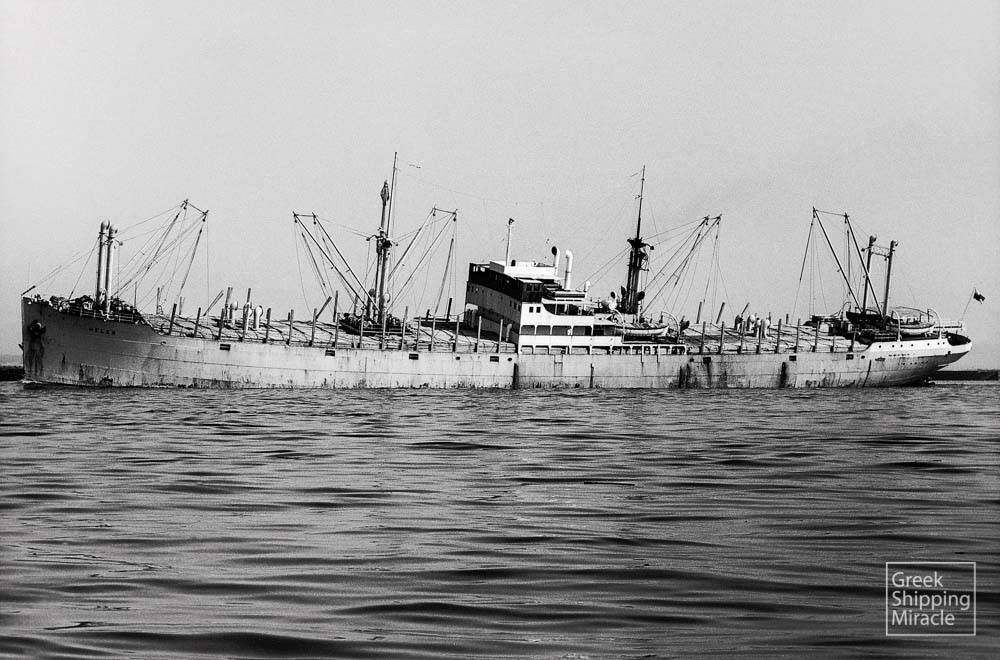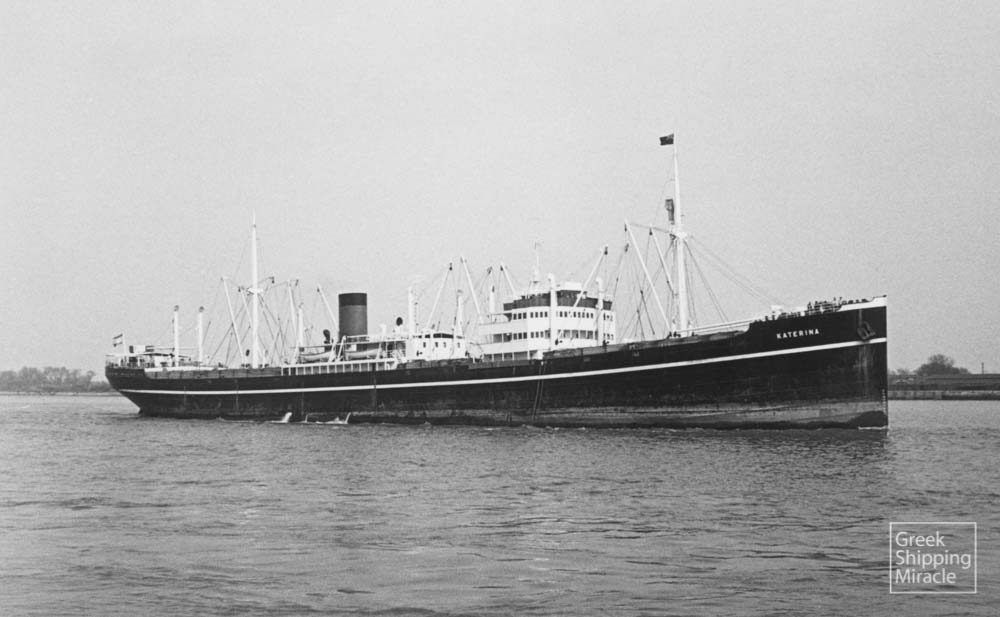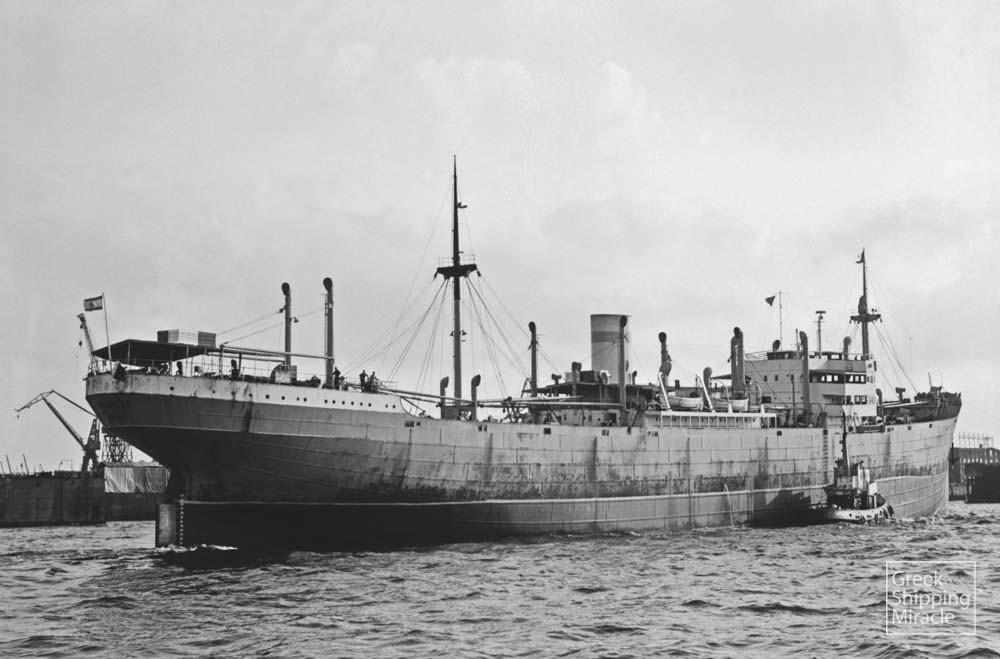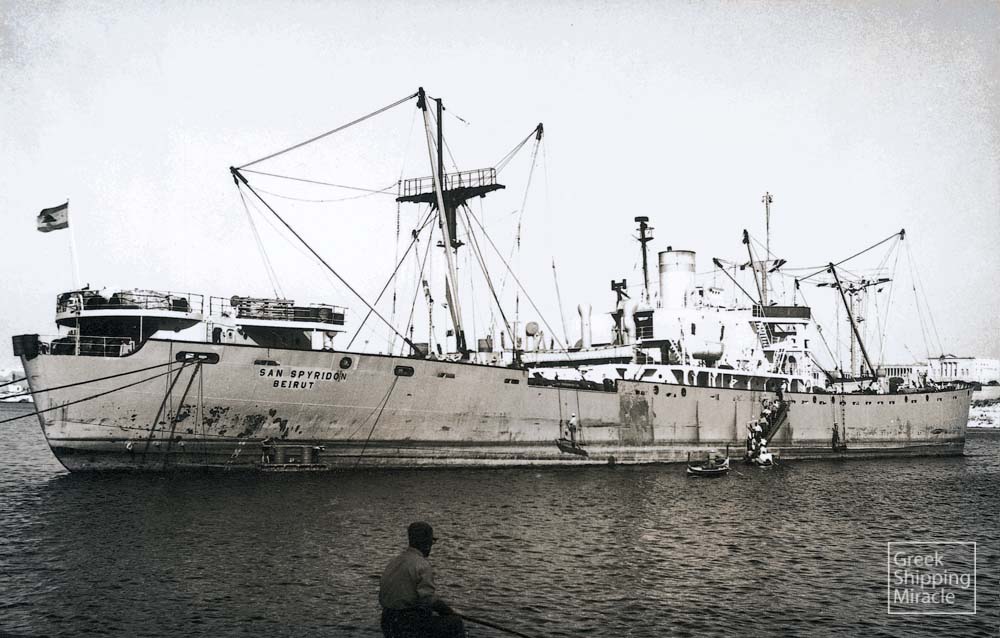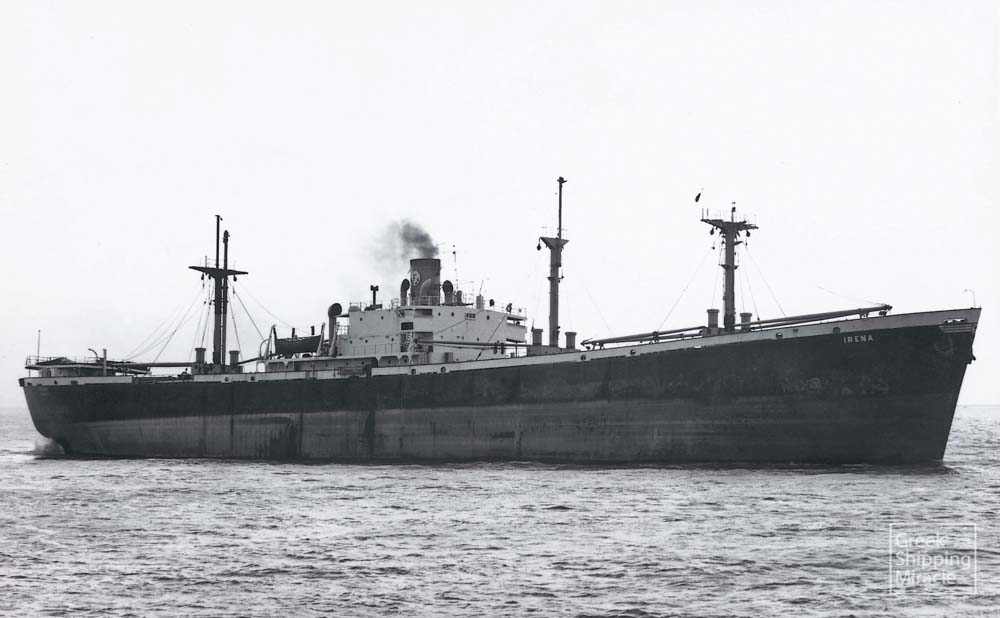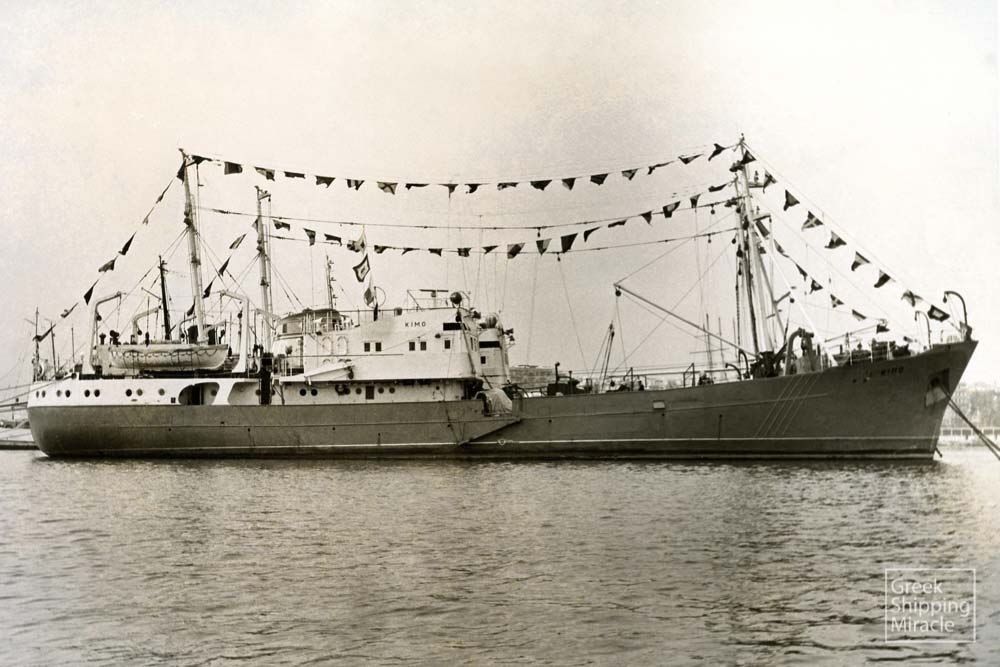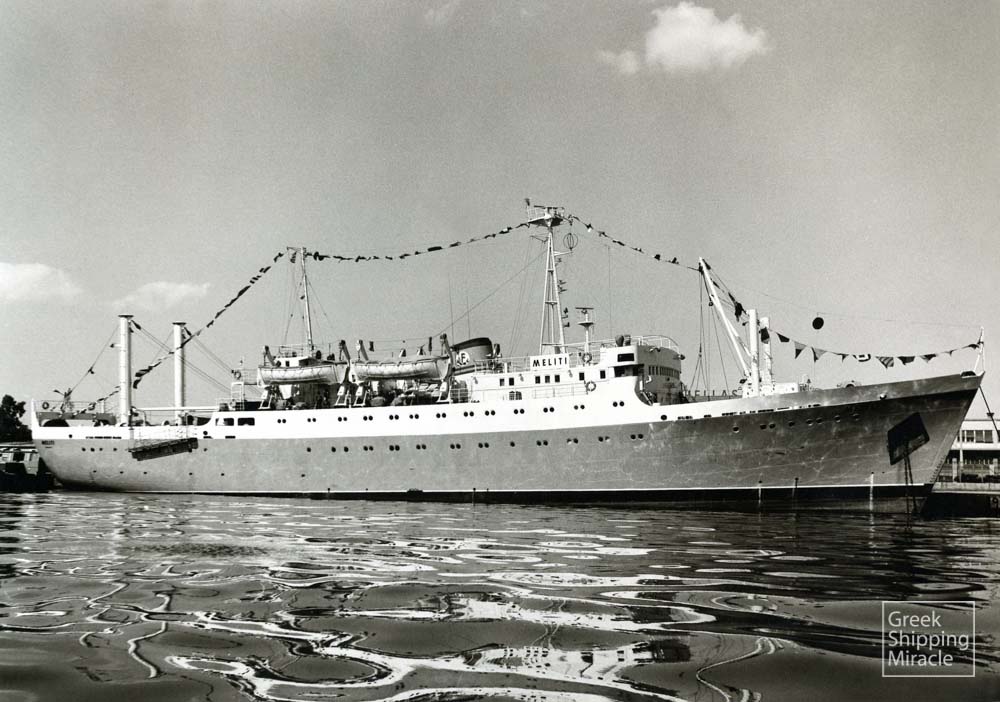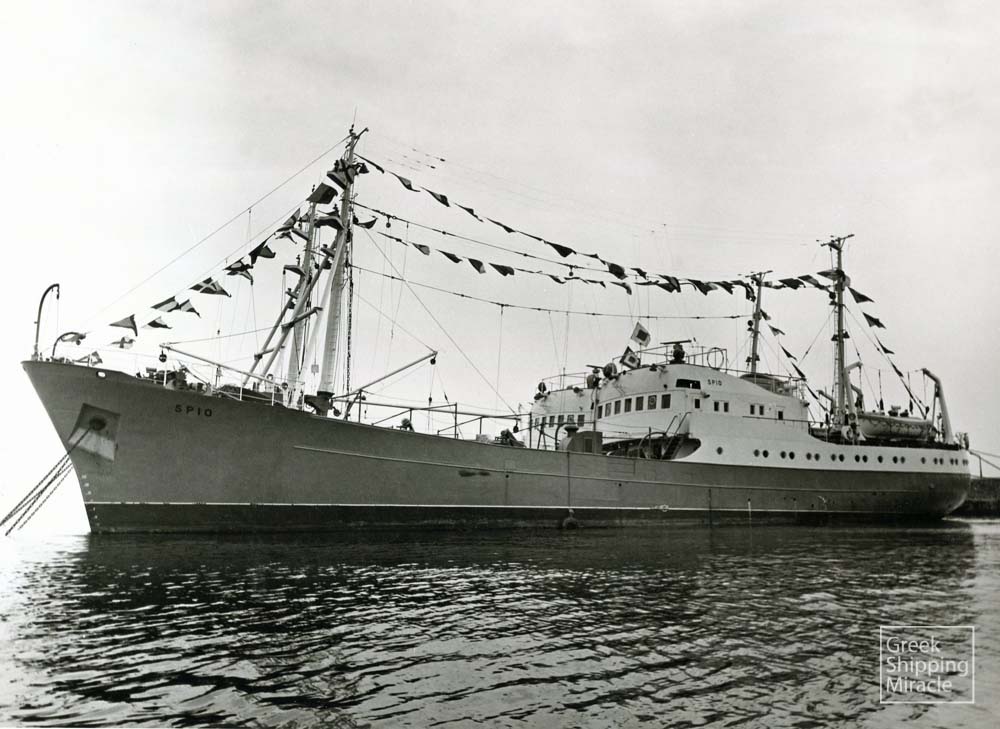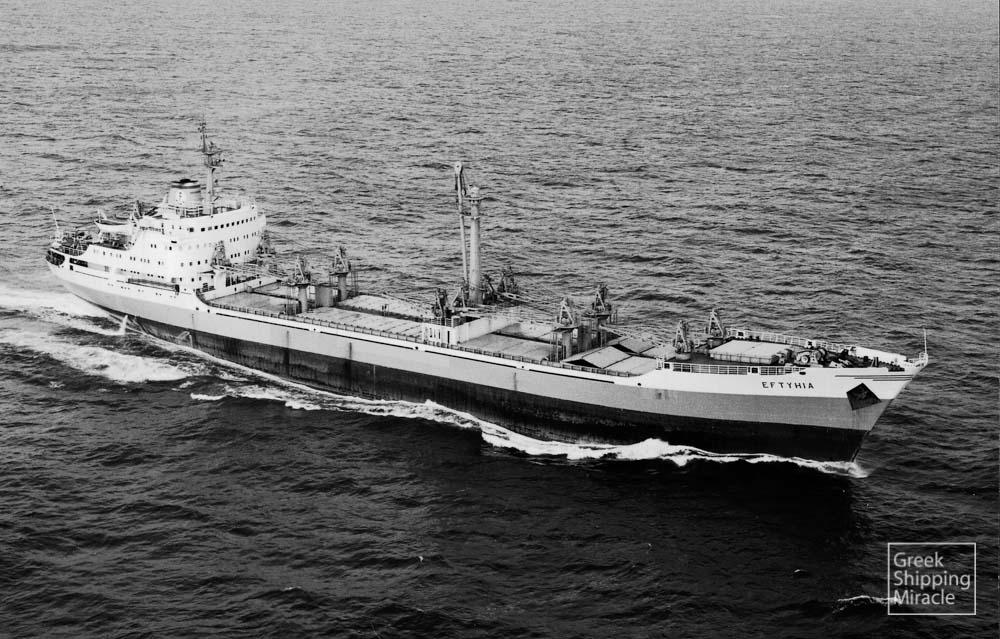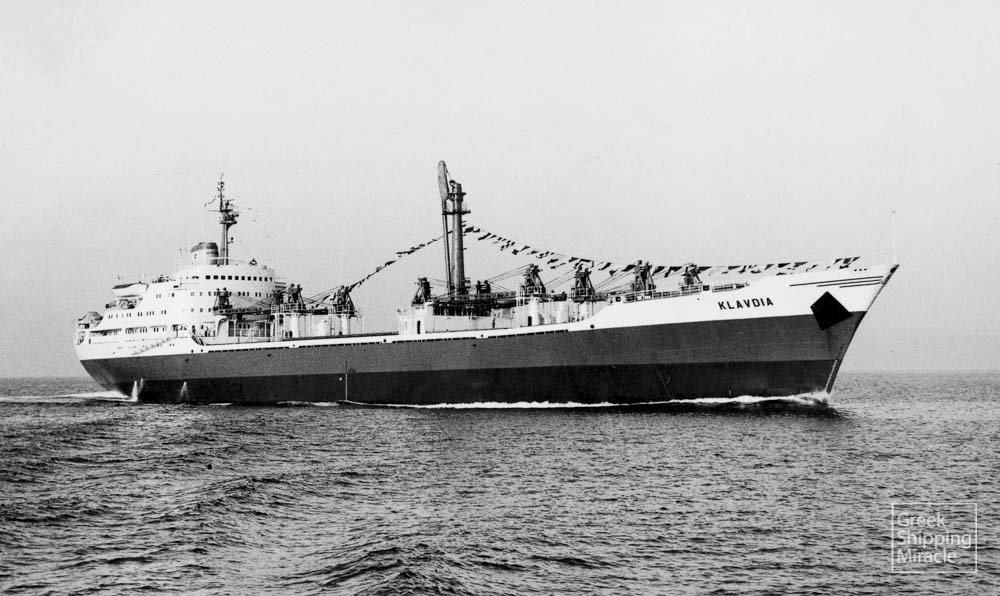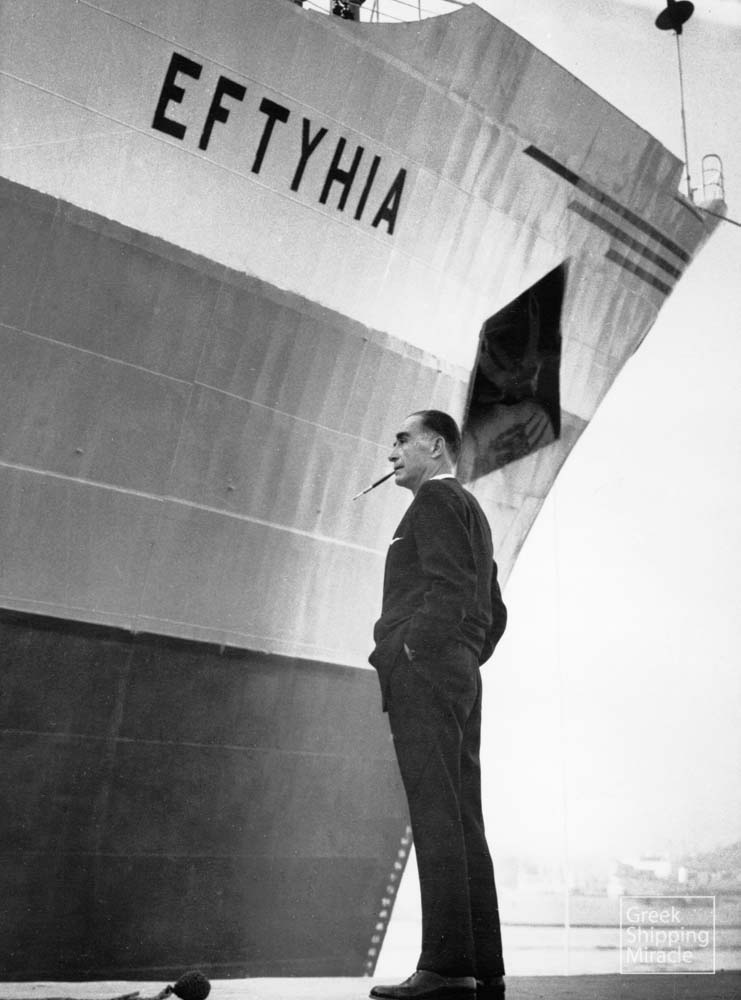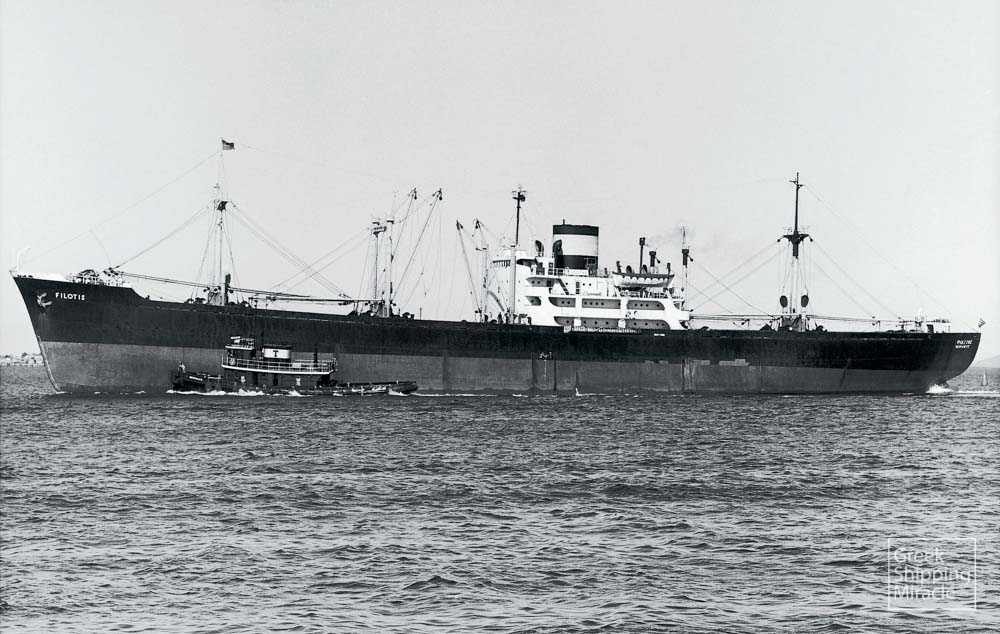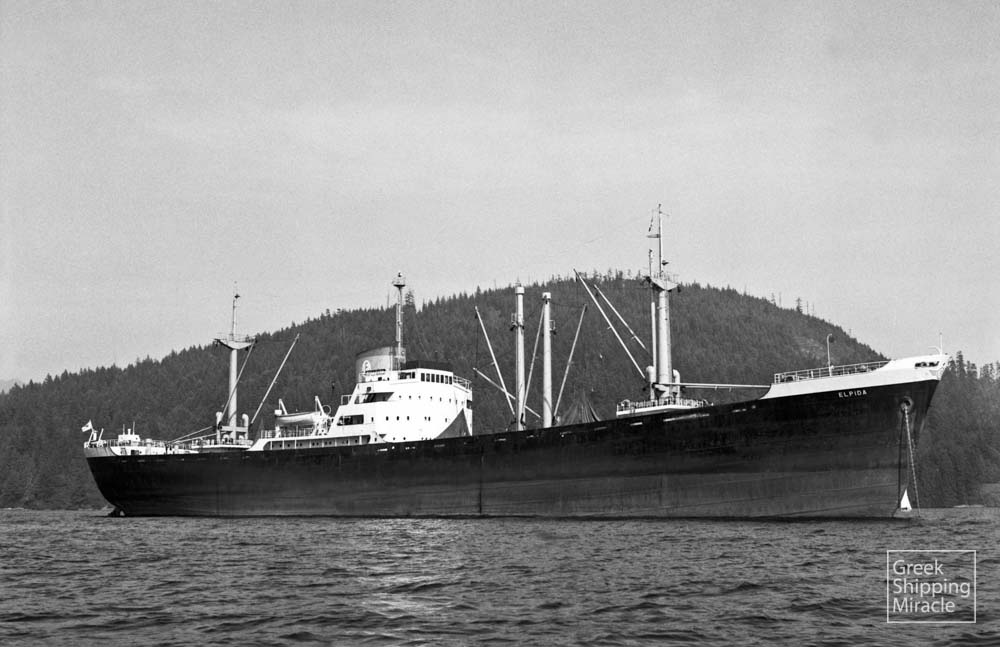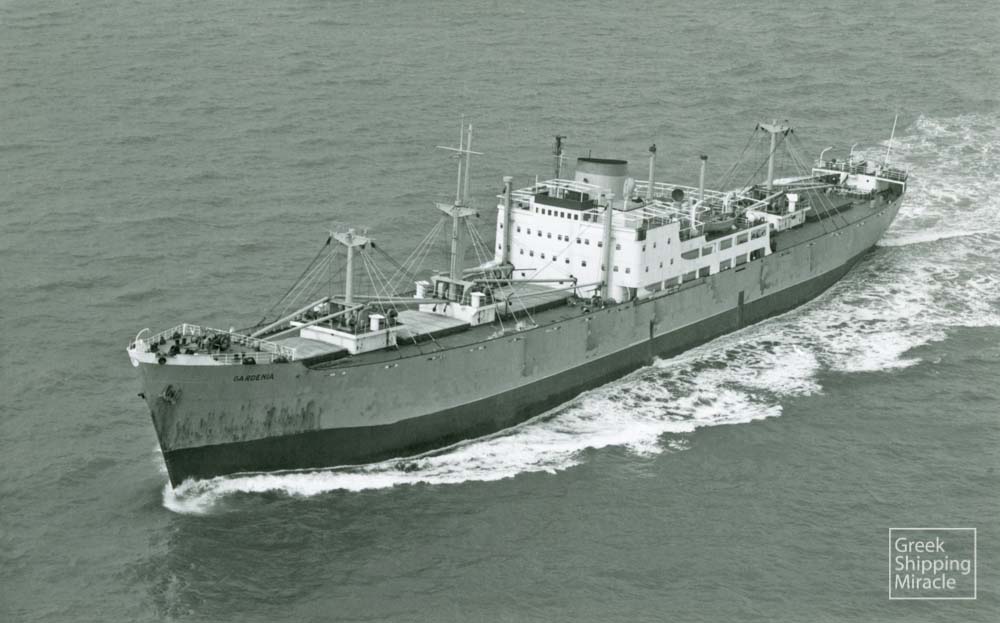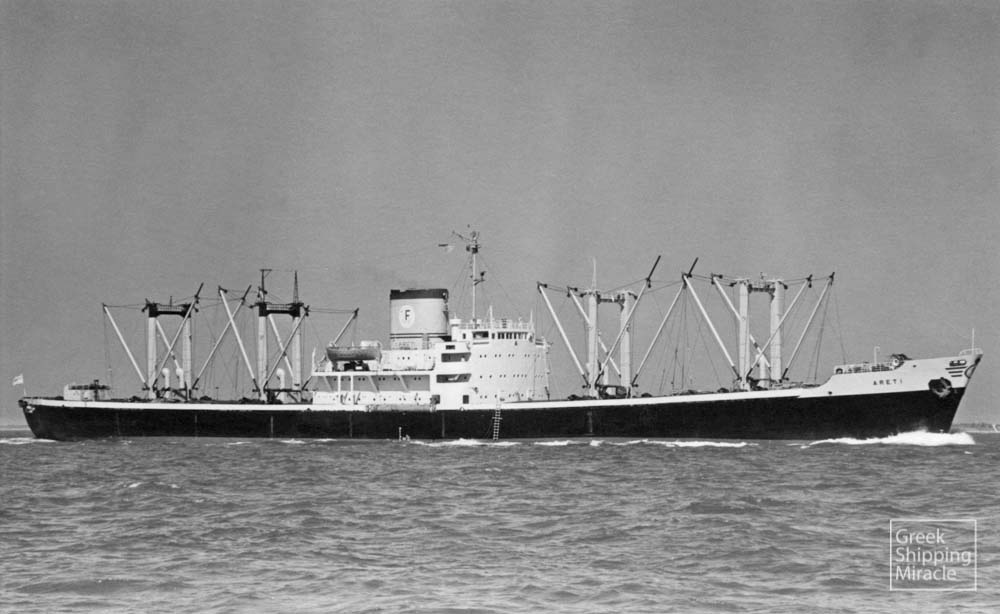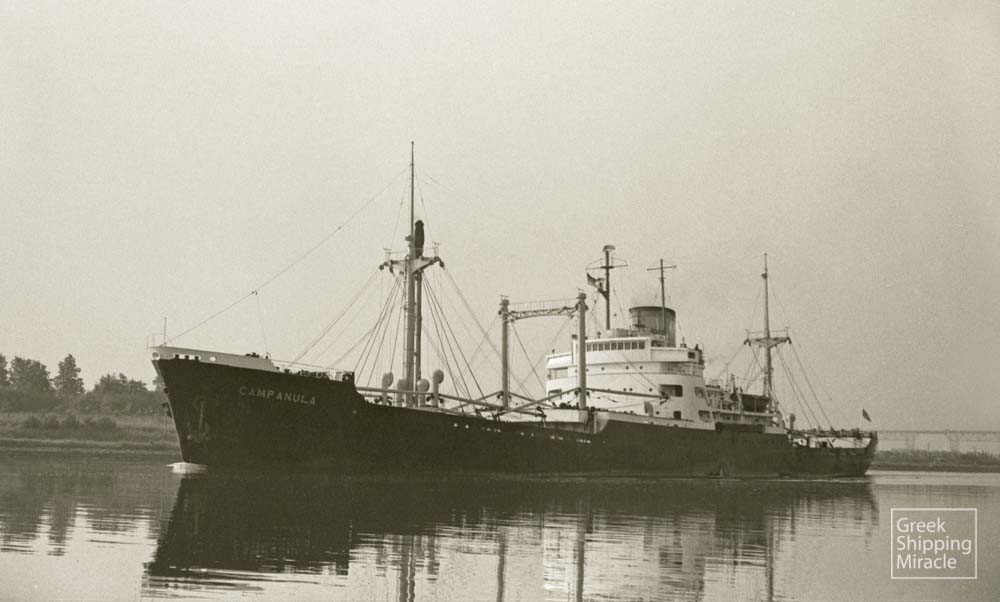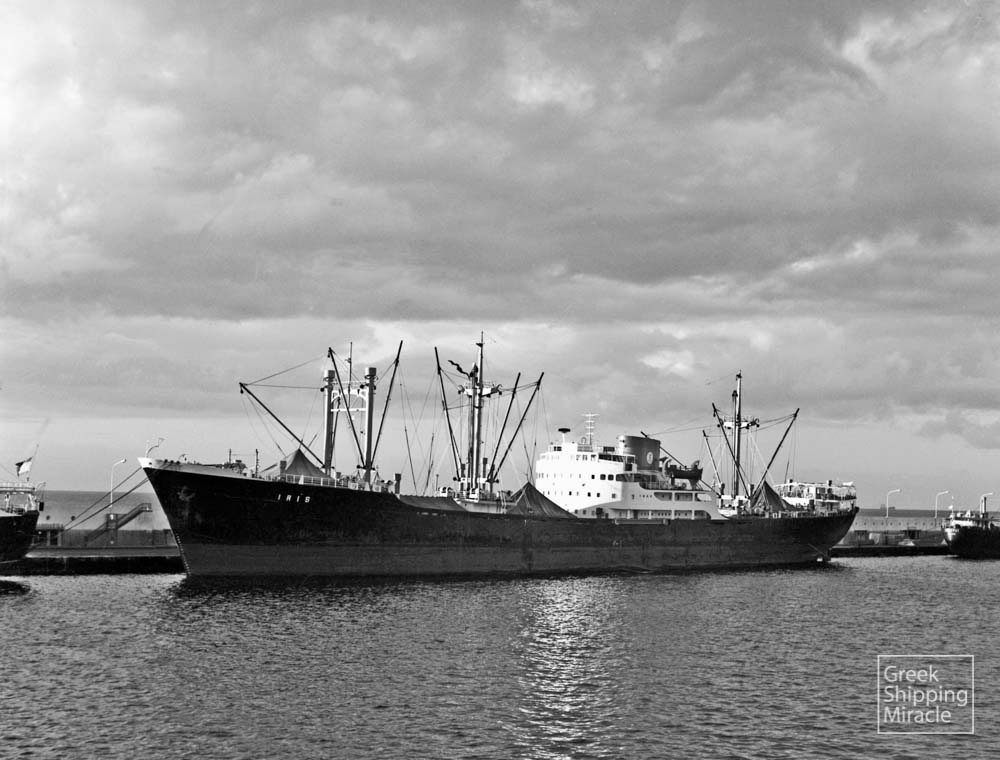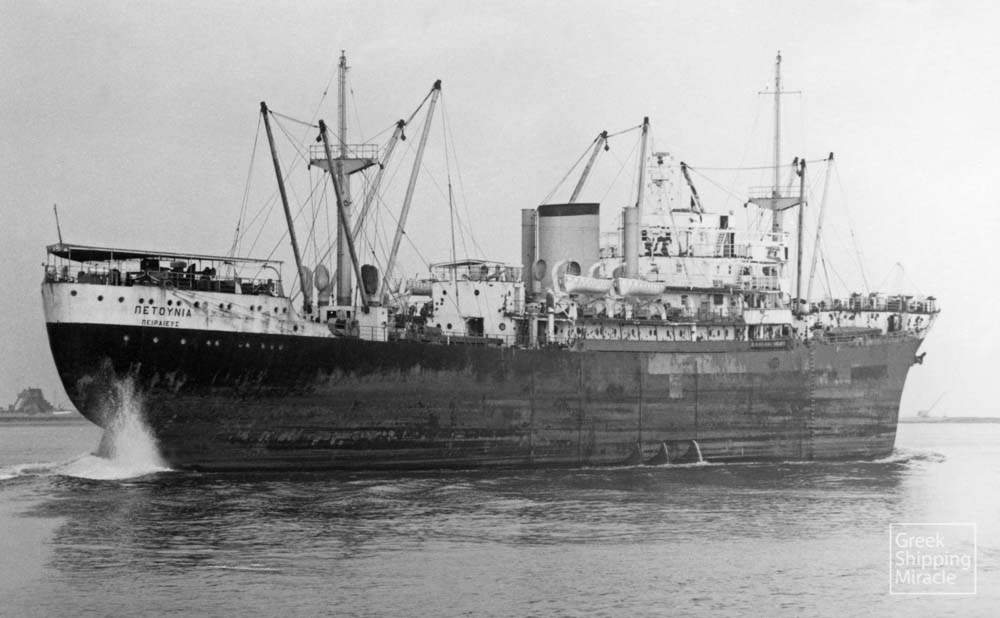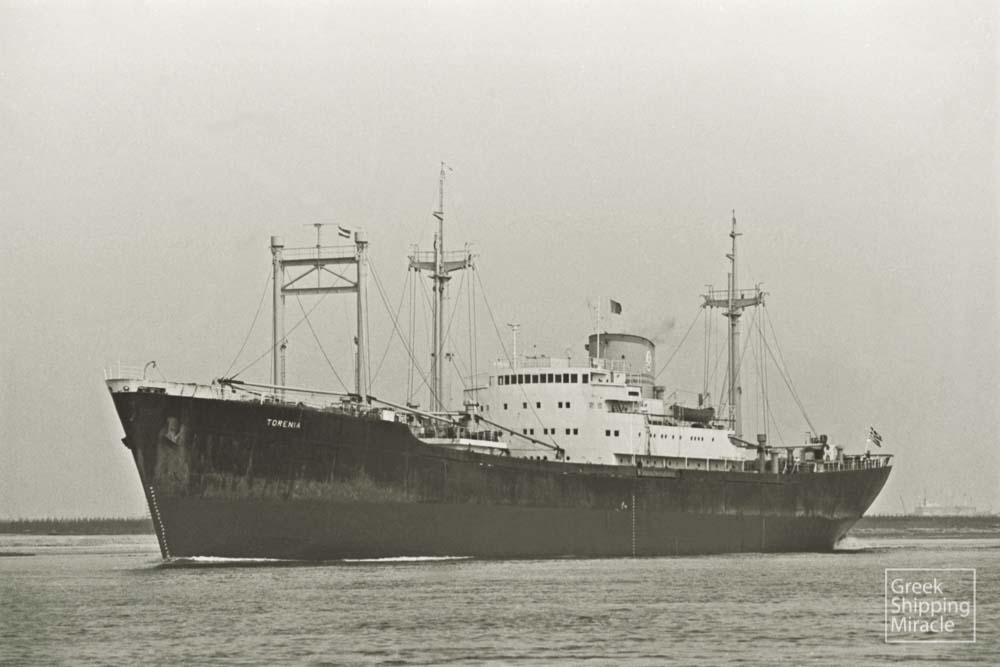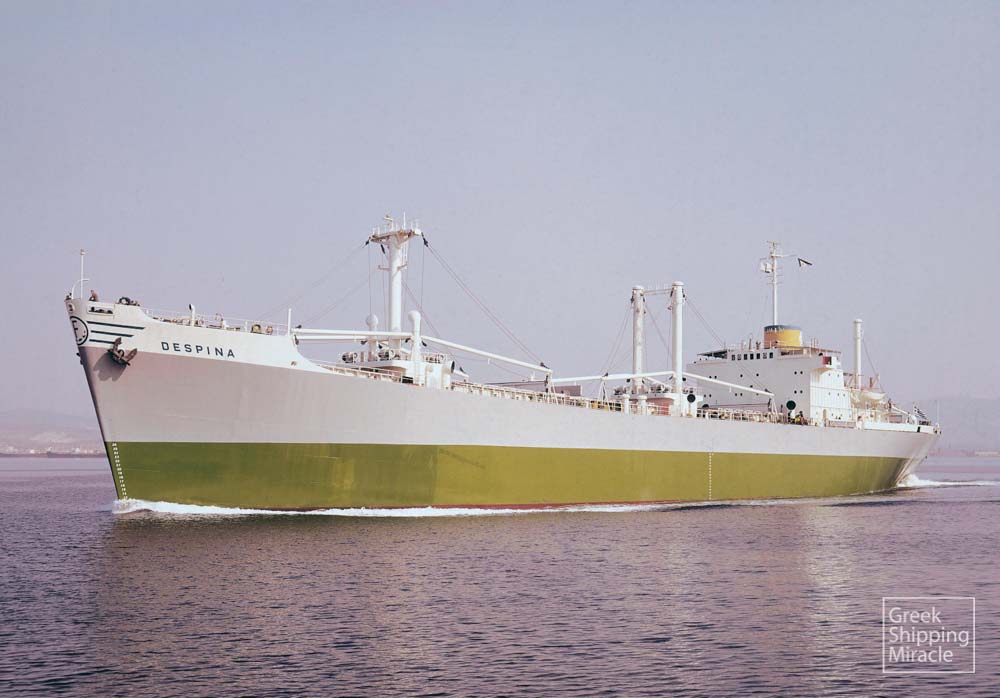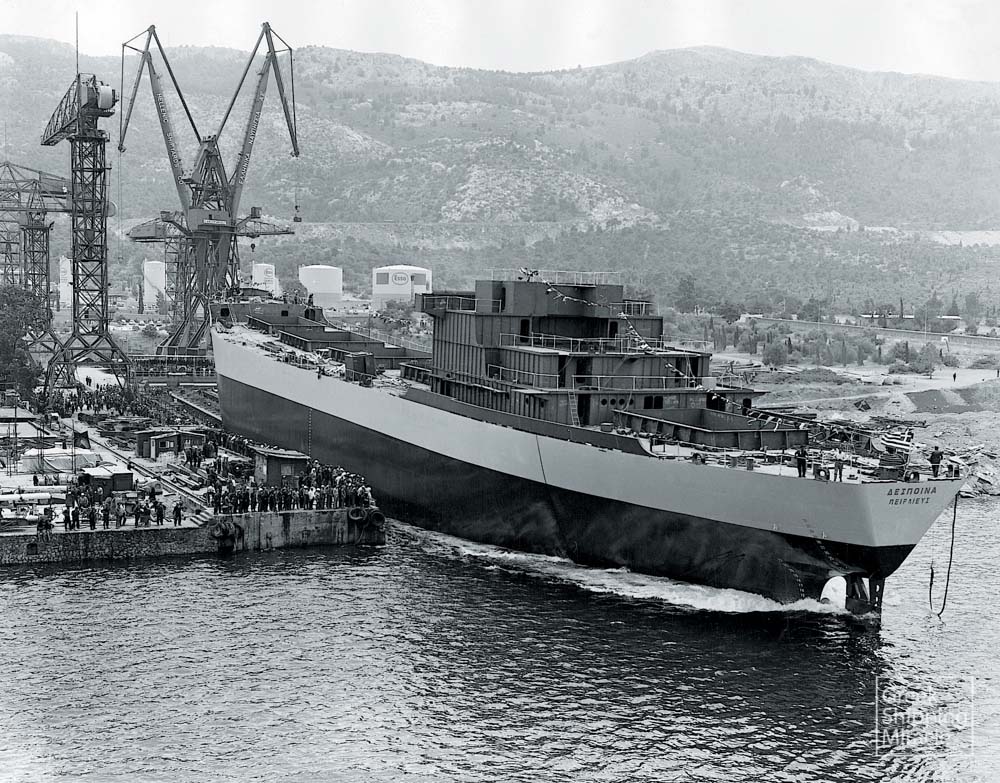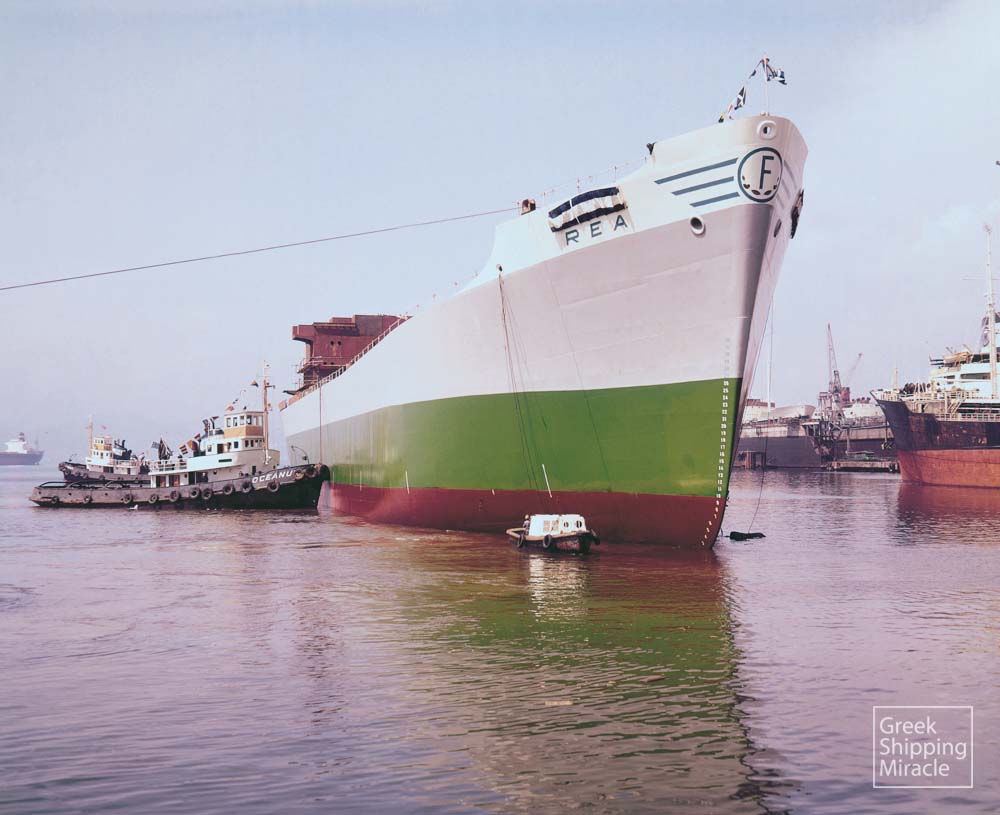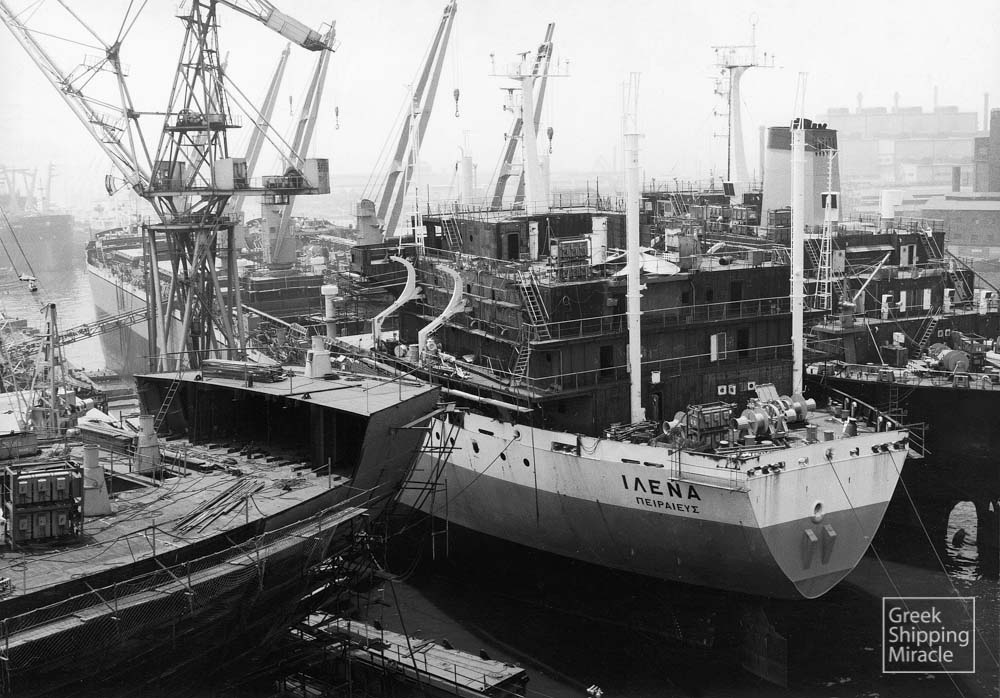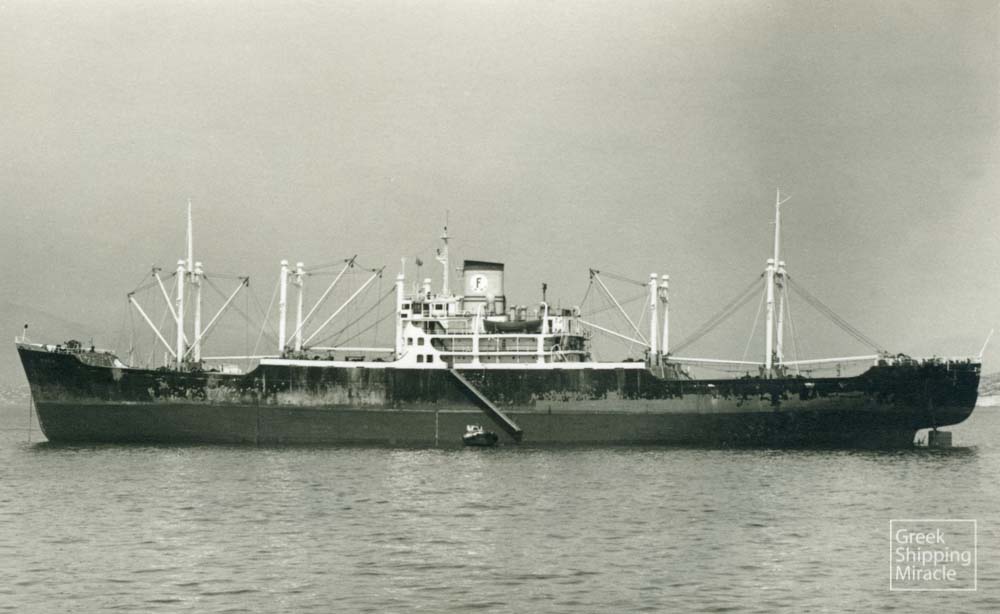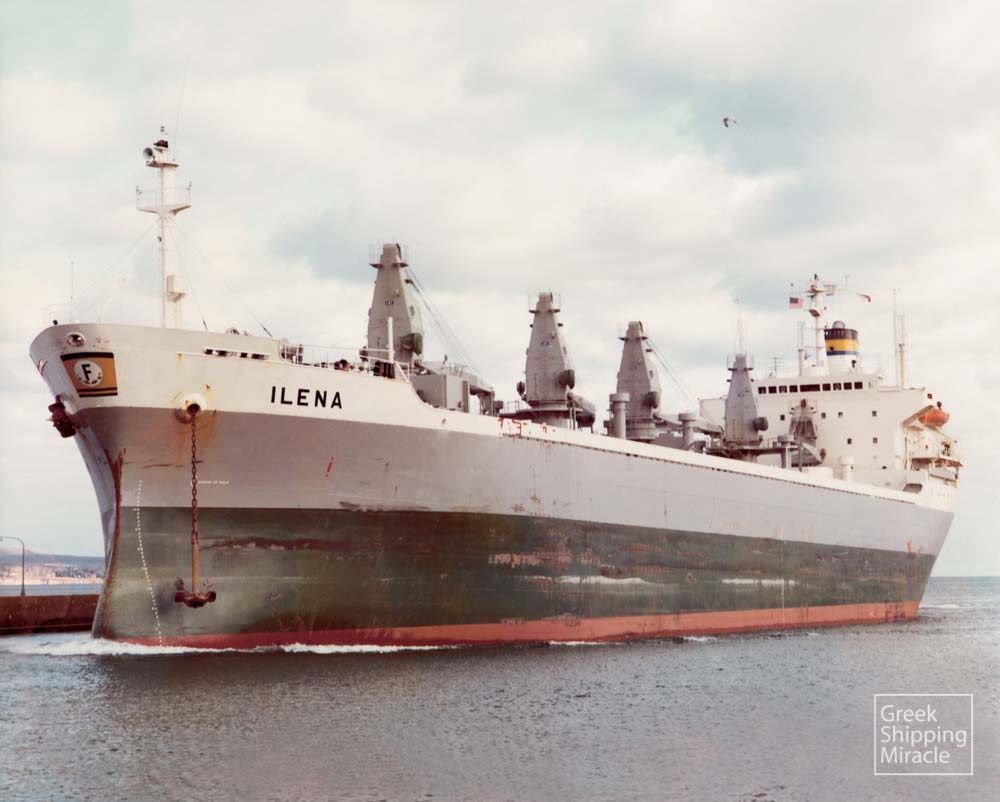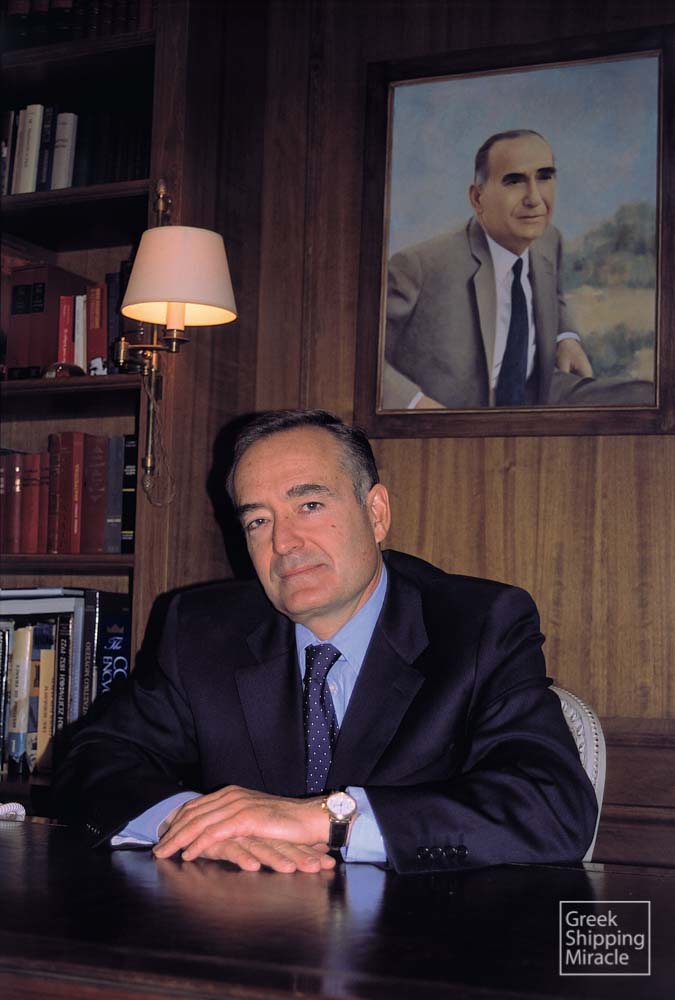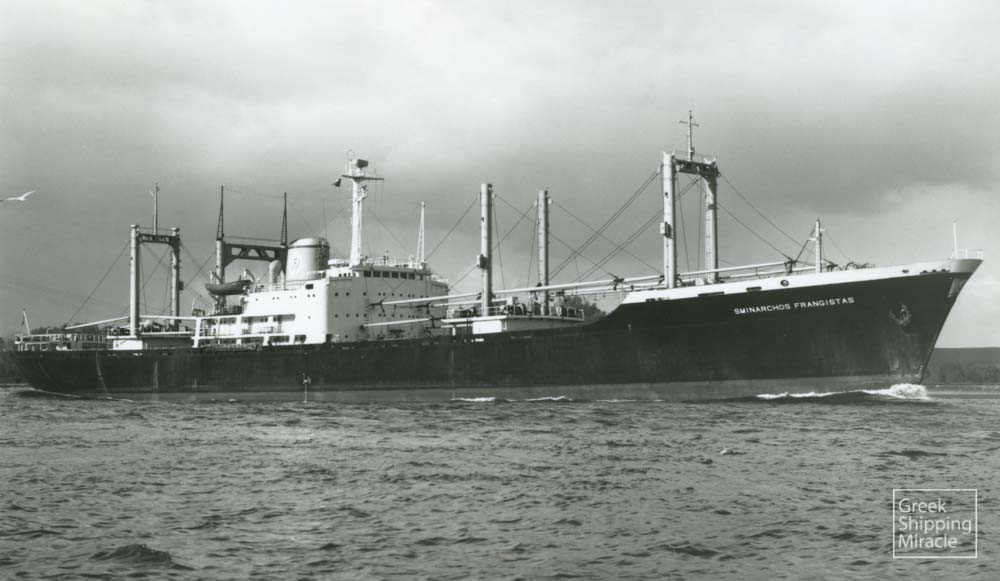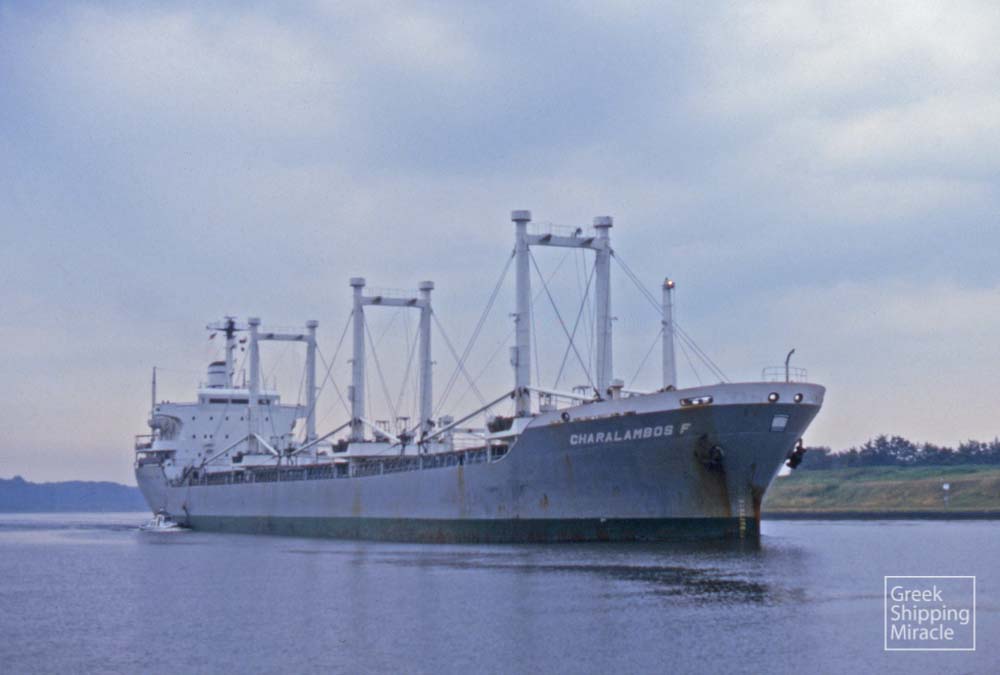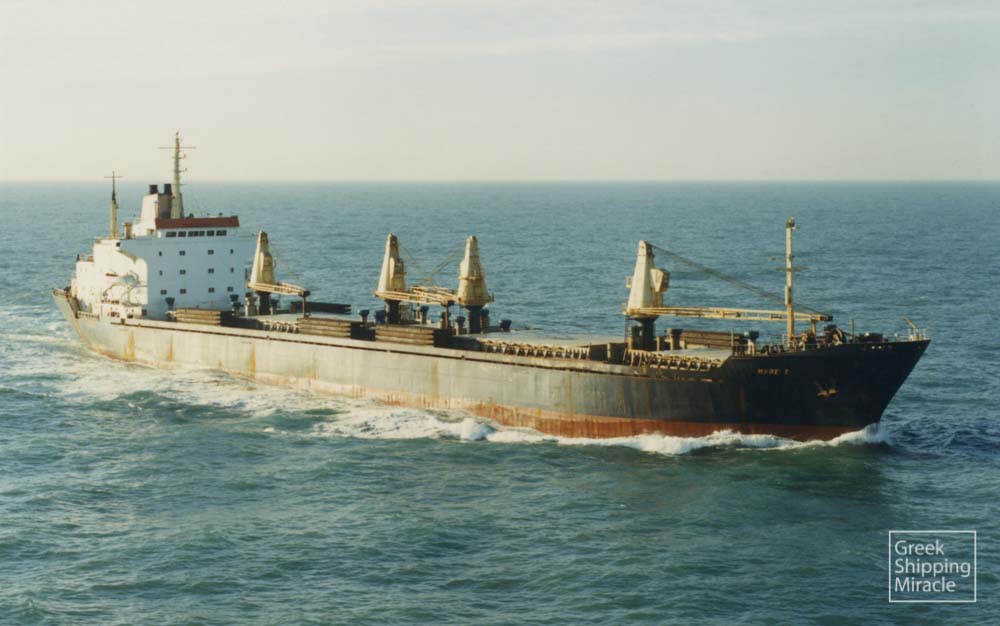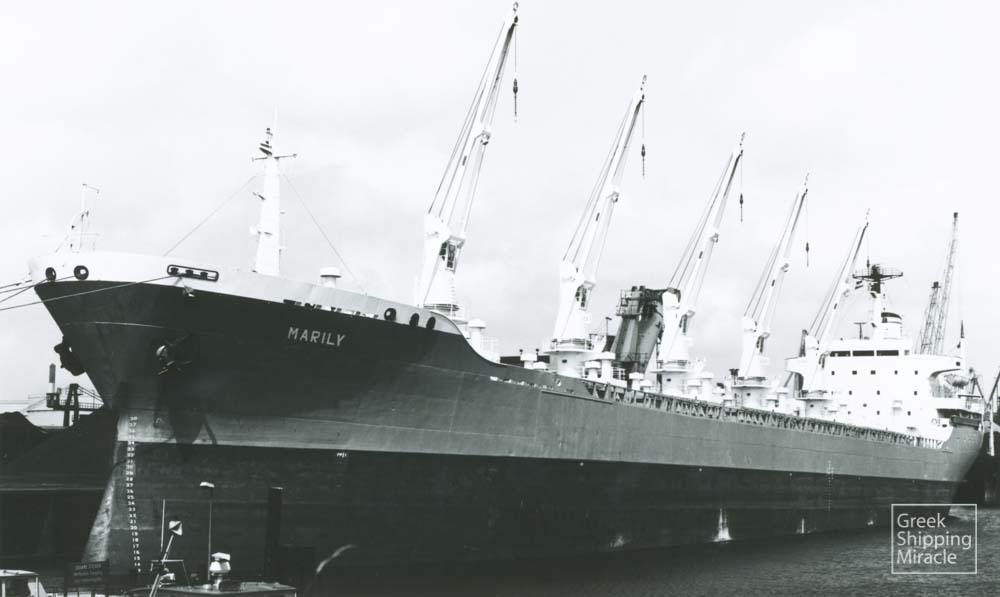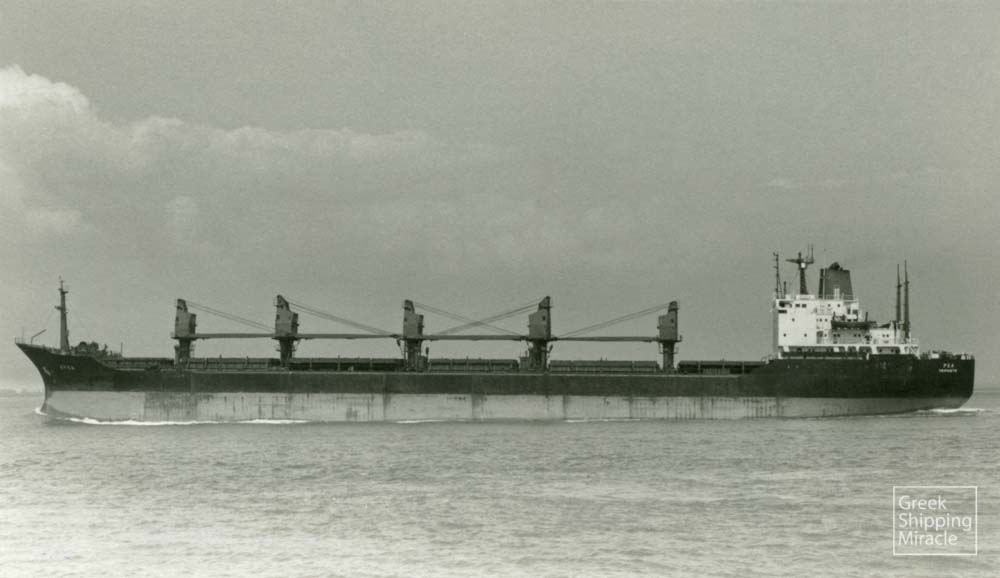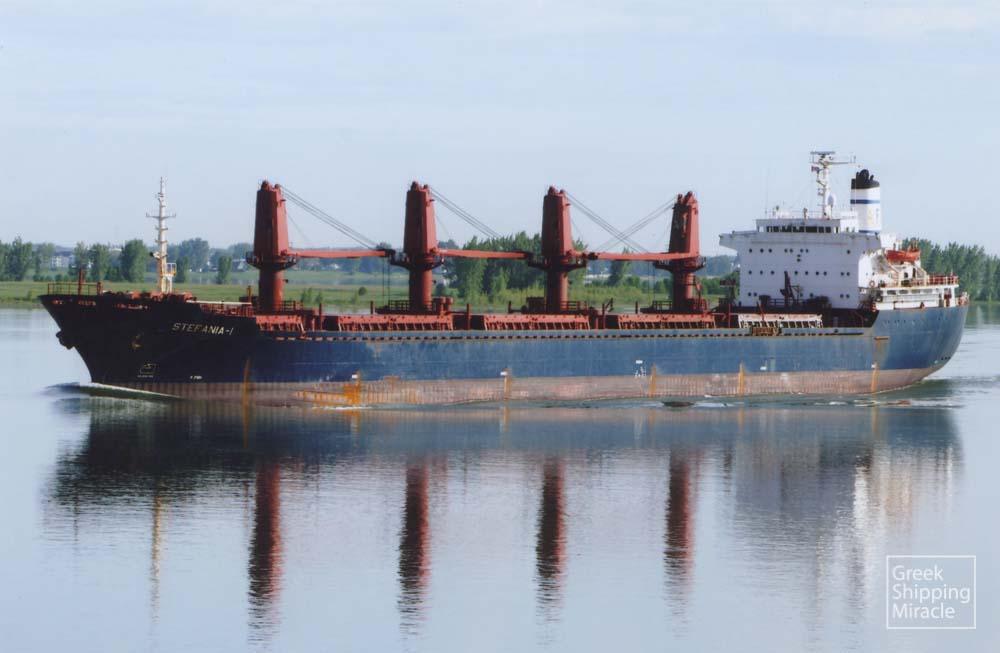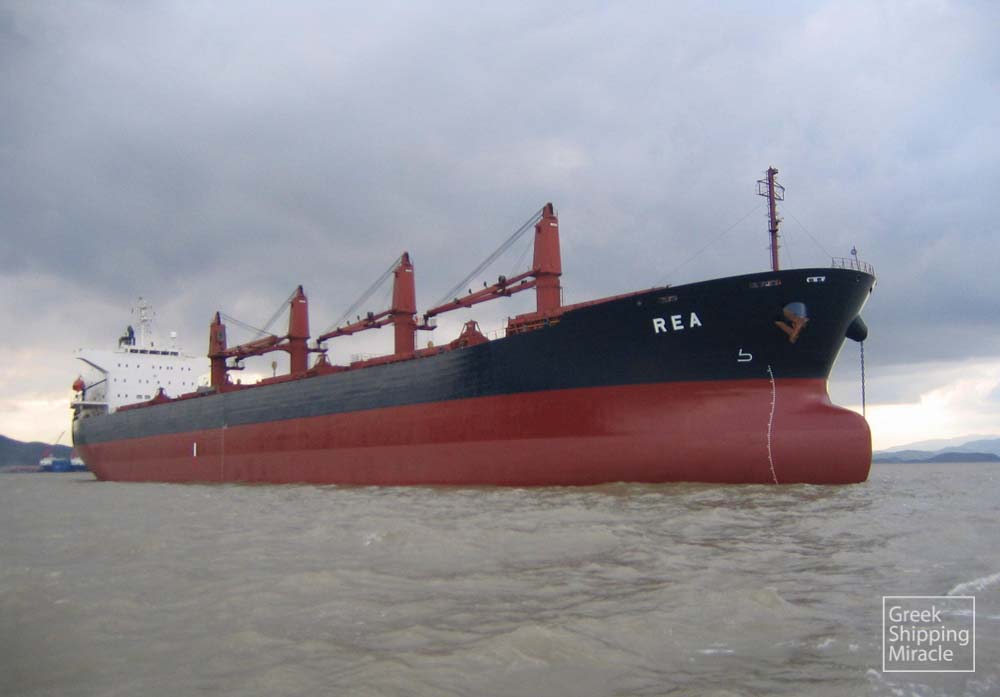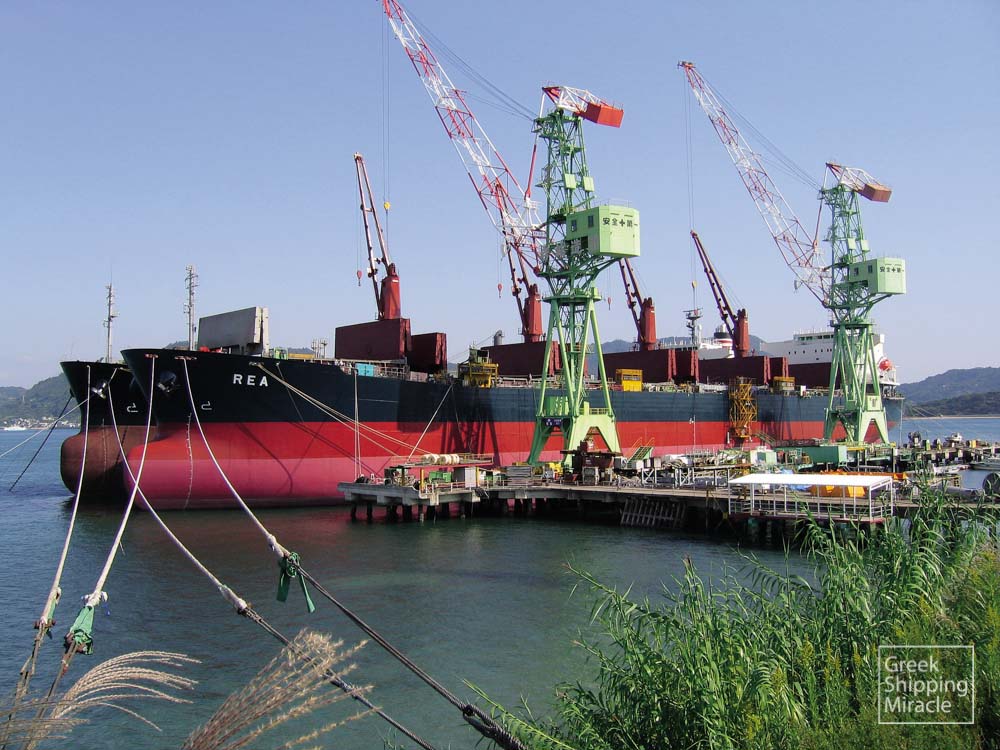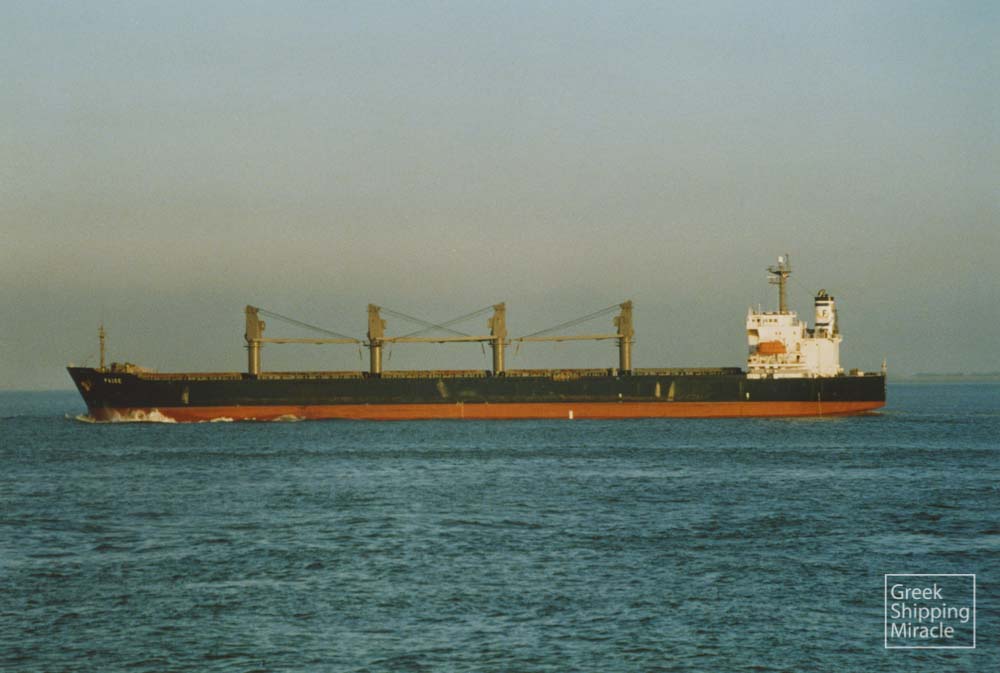Franco Compania Naviera S.A.
Franco Compania Naviera S.A. was founded by Achilles N. Frangistas.
Coming from the village of East Frangista in Evrytania, the family’s patriarch was John Frangistas, who was henchman of Antonis Katsantonis, a notable Greek independence fighter.
The connection of the Frangistas family with shipping began with Areti, the wife of Nicholas Frangistas (1887-1967) and daughter of Constantine Mavrogialis, a shipowner from the island of Skiathos. Nicholas Frangistas was active in politics and had been elected MP for the Stylida district in central Greece.
Nicholas and Areti Frangistas had four sons. Their eldest son Charalambos (1905-1976) was a distinguished lawyer and professor. He served as rector of the Aristotle University of Thessaloniki and minister in caretaker governments. His younger brother George (1907-1975) was an officer at the Greek air force. He later founded GEFKA, a citrus fruit packaging company, with 7 packaging facilities all around in Greece, which exported its produce to the Soviet Union. The third brother Achilles (1911-1984) started his career as a gynecologist and taught at the University of Athens as an assistant professor, before embarking on a career in shipping. Finally, the couple’s youngest son John-Nicholas (1913-1978), was a lawyer, like his brother Charalambos.
Achilles Frangistas’ shipping career started after World War II. During the occupation of Greece by the Axis Powers, he fled the country and settled in Egypt where he met his future wife Rhea Tsakiroglou. The couple had four children, Nikos (b. 1952), George (b. 1953), Ilena (b. 1956) and Marily (b. 1958).
In 1948, Frangistas moved to Lisbon. A short while later, he acquired in collaboration with master mariners Stamatis Manesis and Efthimios Athanasiou, a 30-year old cargo ship. The acquisition of the RHEA, as the vessel was renamed, proved successful due to the booming freight market in the midst of the Korean War. Therefore, the following year, another ship was acquired and like the RHEA was placed under the Panamanian flag. In the mid-1950s, three cargo ships, which were flagged in Costa Rica, joined the fleet. The vessels worked profitably until the outbreak of the freight market crisis in 1957 and were eventually sold for scrap at the end of the decade.
The downturn led to extensive lay-up of ships, as well as to a dramatic drop in vessel values. Nevertheless, Frangistas, who was optimistic about the market’s long-term prospects, took advantage of low second-hand prices and invested in several vessels. Between 1959 and 1962 he formed a fleet of 15 cargo ships – including six Liberty-type – which were both larger and younger than the vessels that had been sold for scrap. Most of the newly-acquired units were placed under the Lebanese flag. Meanwhile, having relocated back to Athens, he founded in 1960 Franco Shipping Co.
Although the freight market remained subdued in the early 1960s, Achilles Frangistas, like many of his colleagues, took advantage of the Cuban Missile Crisis in October 1962, chartering out a large part of his fleet for the transportation of goods – mainly sugar – from Cuba to the Soviet Union. During the course of that decade, he expanded the Franco fleet through the acquisition of five vessels per year on average, which in most cases had been built during World War II. Nearly all of those ships were placed under the Greek flag, while from the late 1960s until the mid-1970s most of the fleet joined the recently-formed Cyprus registry.
In late 1965, capitalising on a healthy balance sheet, Frangistas embarked on his next venture, a $107 million deal with the Soviet Union. According to the agreement, Franco would get delivery of 33 newly-built vessels of various types from Soviet Union yards, paying part of the price with unsold Greek agricultural products, such as tobacco and citrus. However, the agreement included the acquisition of seven fishing vessels, which proved extremely loss-making for the group, as fishing was a specialised sector that Frangistas was unfamiliar with.
The breakdown of the fishing venture torpedoed the deal with the Russians leading to several cancellations. In the end, Franco got delivery of only three cargo ships, the EFTYHIA in 1965, the KLAVDIA in 1966 and the EVGENIA in 1967. The negative outcome of this project had a profound effect on Frangistas’ health.
The group had been active not just in shipping, but also in the food and tourism industries. In 1969, Frangistas established a tomato paste production and packaging factory in Orchomenos, while three years later he acquired a similar unit in Aliartos. These facilities were ranked among the top five in the production of tomato paste and fruit processing in Europe. Apart from the above, he developed in collaboration with the Sistovaris family, a large holiday resort in Gregolimano, Euboea, which was later sold to the Club Med group.
Achilles Frangistas continued expanding the Franco fleet despite the cancellation of the deal with the Soviet Union. During the late 1960s, he acquired more second-hand tonnage, while in 1970 he placed an order at Hellenic Shipyards for the construction of two SD-14-type cargo ships, the REA and the DESPINA, which were delivered in 1971.
Managing a robust fleet of 25 vessels – half placed under the Greek flag and the rest under the Cyprus flag – Franco Compania Naviera S.A., as the company was renamed in 1968, continued growing despite two deep oil crises that affected the global economy in the early 1970s. During this challenging time, Frangistas’ health deteriorated further, depriving Franco of its leader for a few years, during a period when no experienced successor was in place. Achilles’ eldest son Nikos was only 20 and had recently begun his academic studies. This led to the downsizing of the company’s activities through the disposal of nearly half of its fleet in the coming years. In 1976, however, encouraged by the explosive growth in shipbuilding – particularly in Japan – Achilles Frangistas placed an order at the Japanese shipyard Namura Zosensho for the construction of the ILENA, the group’s first newly-built bulk carrier. Nevertheless, as was the case with several investments made that year in Japan, this venture proved problematic due to fluctuations in the exchange rate between the US dollar and the Japanese yen, which was the basis of loan agreements for the construction of vessels in Japanese yards.
Naturally, the deep crisis that broke out in 1981 lasting until 1986, affected the course of the Frangistas group. With its founder suffering from acute health problems – which eventually led to his early passing on December 29, 1984 – Nikos Frangistas, who was now at the helm of Franco Compania Naviera, exhausted all efforts to deal with the mounting challenges. Having completed an undergraduate law course at the Aristotle University of Thessaloniki, a postgraduate course in shipping law and an LLM (Masters in Law) at University College London, apart from a good knowledge of maritime law, marine insurance, chartering and sale & purchase, he had the valuable support of experienced and loyal staff that had served Franco for years.
The group under its new chairman followed a conservative approach, disposing its older vessels, a move that limited its exposure during the crisis. The company started renewing its fleet and from 1984 acquired new vessels focusing exclusively on the bulk carrier sector. In the mid-1980’s, Achilles Frangistas’ second son, George, decided to follow an independent career in shipping, while Franco continued growing under the leadership of Nikos Frangistas and the active support of his younger sister Marily, a business management graduate.
Following a 55-year presence in shipping, Franco Compania Naviera added in 2003 to its eight-vessel fleet a Japanese newly-built bulk carrier, the REA. Over the coming years, the booming market coupled with well-timed sale & purchase transactions, laid the foundations for the business’ further growth. Apart from the rich experience arising from its long-standing operation, Franco has now onboard members of the family’s third generation that build on the vision that Achilles Frangistas championed.
